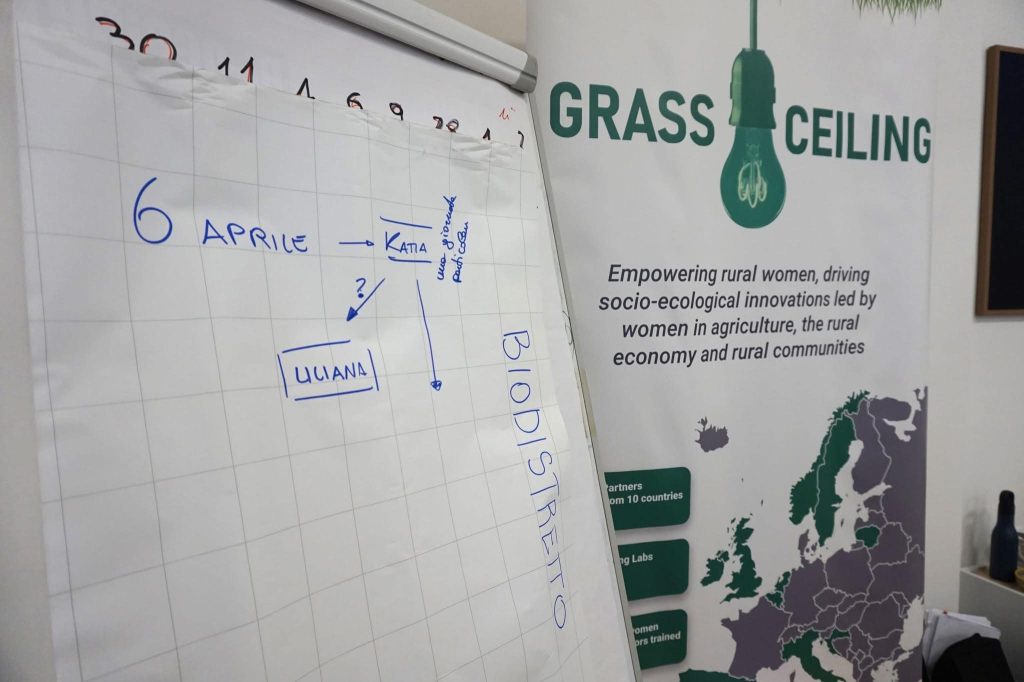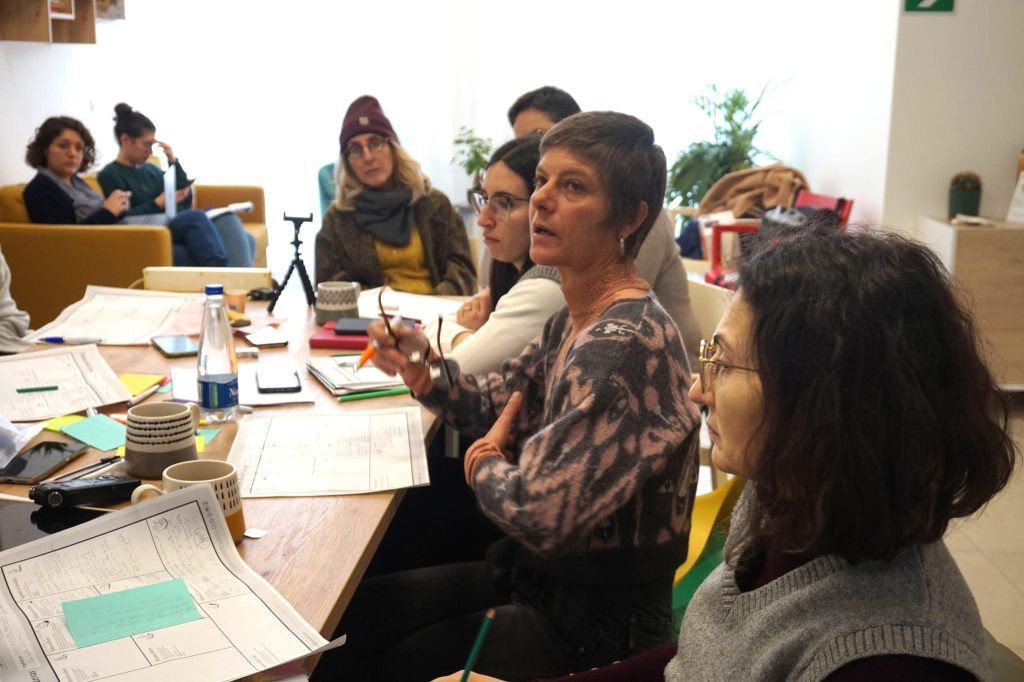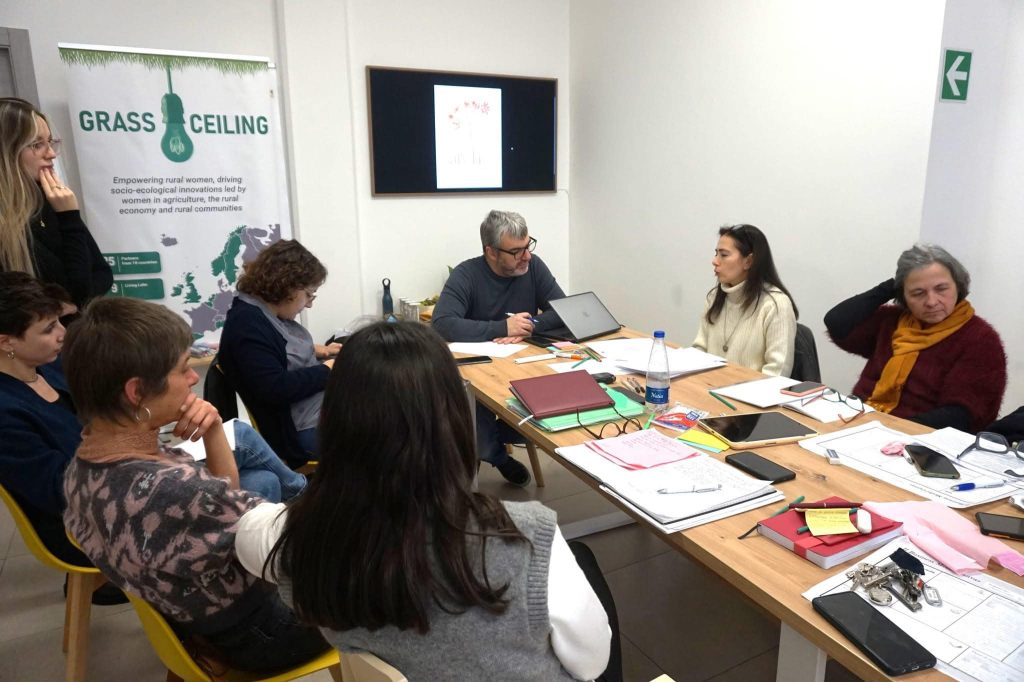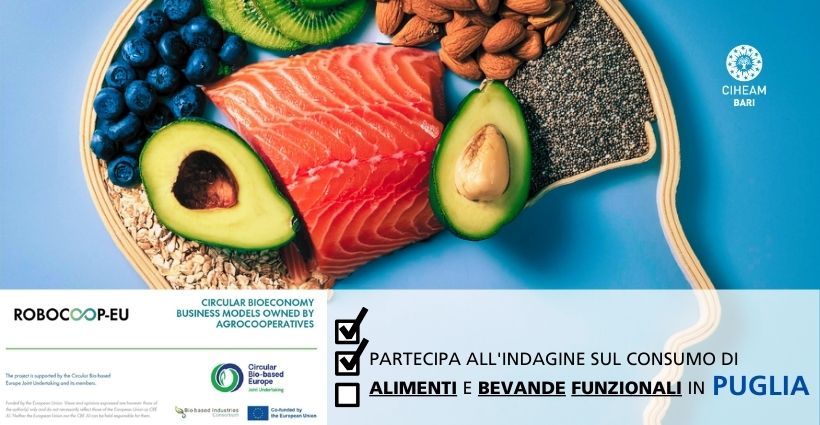
Nell’ambito del progetto europeo ROBOCOOP, un team di ricercatori del CIHEAM Bari sta conducendo un’indagine sul consumo di alimenti e bevande funzionali arricchite con ingredienti bioattivi ottenuti attraverso tecnologie sostenibili. Le bevande funzionali, oltre ai loro riconosciuti benefici nutrizionali, sono note per il loro impatto positivo sulla salute.
L’indagine mira a sviluppare un piano di marketing dedicato agli ingredienti bioattivi, con particolare attenzione al mercato della salute e del benessere. Inoltre, il progetto analizza le dinamiche sociali legate al consumo di queste bevande in Grecia, Italia e Spagna.
L’indagine è suddivisa in due sezioni principali:
Ogni sezione del sondaggio include tre aree di approfondimento:
I dati raccolti saranno utilizzati esclusivamente a fini statistici, garantendo l’anonimato dei partecipanti nel rispetto del Regolamento (UE) 2016/679 sulla protezione dei dati personali.
Il tuo contributo è essenziale per il successo di questa ricerca! Ti invitiamo a partecipare compilando il questionario ai link sopra indicati.
🔗 Per ulteriori informazioni, visita il sito ufficiale di ROBOCOOP: https://robocoop-project.eu/
Youngle Bari, il progetto di supporto psicologico anonimo promosso dall’associazione ReStart, amplia i suoi servizi offrendo assistenza anche in lingua inglese. L’iniziativa mira a supportare gli studenti internazionali che affrontano difficoltà di integrazione a causa di barriere linguistiche e culturali.
Un ruolo chiave in questa espansione sarà svolto dal CIHEAM Bari, che collaborerà al progetto per raggiungere un’ampia platea di studenti stranieri. «Grazie al supporto del CIHEAM Bari – spiega Donatella Loiacono, presidente di ReStart – potremo rivolgerci a una parte significativa della popolazione studentesca internazionale, favorendo un ambiente più inclusivo e accogliente».
«Siamo orgogliosi di sostenere l'iniziativa Youngle Bari, che rafforza il benessere degli studenti attraverso un supporto accessibile e multilingue. - Le parole del direttore del CIHEAM Bari, Maurizio Raeli -. Questo passo inclusivo, con il supporto in inglese, aiuterà i nostri studenti internazionali a sentirsi ancora più accolti e supportati nel loro percorso accademico e personale».
Il servizio, che si avvale di peer con conoscenza fluente dell’inglese, sarà presentato agli studenti del CIHEAM Bari il 21 febbraio, offrendo un ulteriore strumento di sostegno per la loro integrazione accademica e sociale.
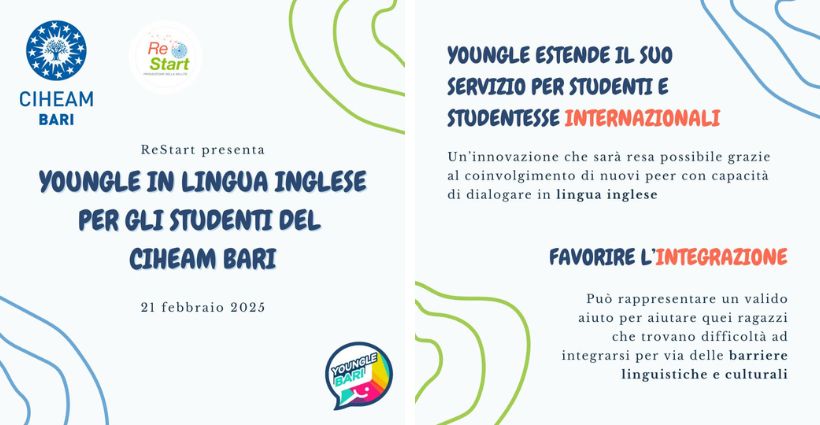
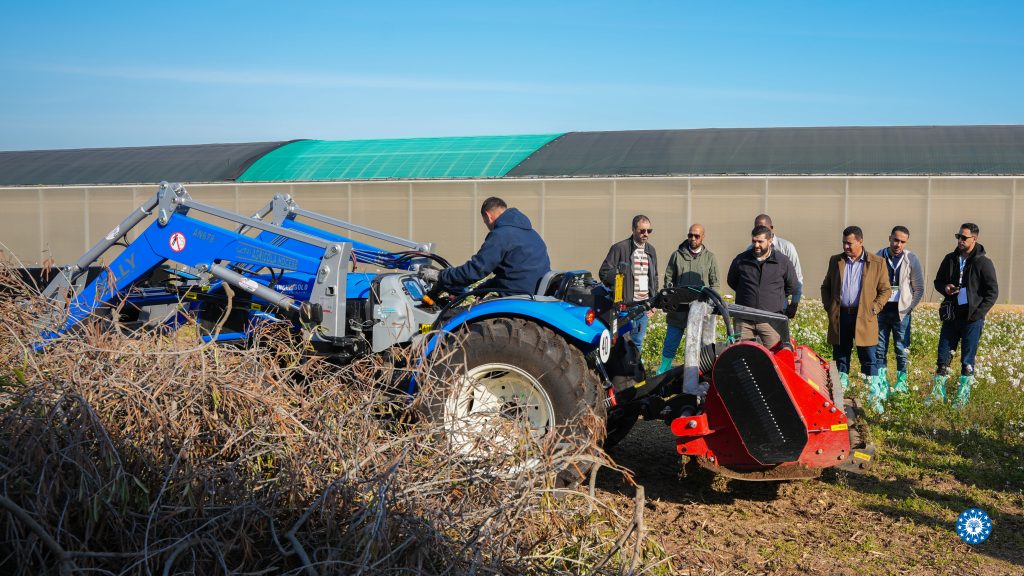
A rafforzare ulteriormente l'offerta formativa del CIHEAM Bari è la recente donazione di un trattore New Holland con caricatore frontale e benna, da parte di CNH, azienda globale leader nel settore delle macchine e dei servizi per agricoltura e costruzioni. Questo mezzo agricolo sarà utilizzato nelle visite tecniche e nei corsi di formazione organizzati nel Campus Cosimo Lacirignola, per migliorare, in modo sostenibile, il prezioso lavoro degli operatori dell'agricoltura.
Il trattore giocherà un ruolo chiave anche nelle esercitazioni in campo e nelle sperimentazioni, coinvolgendo gli studenti dei corsi del CIHEAM Bari. Tra questi, i Master in Gestione Integrata delle Colture Ortofrutticole, Agricoltura Biologica Mediterranea, Gestione Sostenibile dell'Acqua e del Territorio negli Ecosistemi Agricoli, il corso in Agroecosistemi Sostenibili e Resilienza e quello avanzato di specializzazione in Agricoltura di Precisione per la Regione Mediterranea. Questi programmi formano esperti, provenienti da numerosi Paesi del Mediterraneo e dell'Africa, in agricoltura sostenibile, gestione dell'acqua e del suolo, nella lotta integrata ai parassiti e agricoltura di precisione.
Il 21 febbraio si terrà un evento dimostrativo nell'ambito di un corso di formazione destinato alle aziende agroalimentari del Congo. L'iniziativa, organizzata in collaborazione con ITA (Italian Trade Agency), rientra nel programma Lab Innova for Africa “Luca Attanasio” dell’Agenzia ICE, avviato nel 2019 per la formazione tecnico-manageriale.
Oltre al corso dedicato alle aziende agroalimentari congolesi, il trattore sarà utilizzato anche nei programmi di formazione destinati alla Libia e ad altri Paesi coinvolti nelle iniziative del CIHEAM Bari. L'obiettivo è sostenere l'imprenditoria agricola e migliorare l'accesso ai servizi, favorendo, così, l'aumento della produttività e dell'innovazione. Nel medio periodo, il CIHEAM Bari intende ampliare il numero di Paesi beneficiari di queste iniziative, coinvolgendo ulteriori realtà agricole grazie alla collaborazione con il settore privato italiano.
Questa sinergia tra formazione, tecnologia e cooperazione internazionale rappresenta un passo avanti nella promozione di un'agricoltura sostenibile e innovativa, capace di rispondere alle sfide globali della sicurezza alimentare e della gestione delle risorse naturali.

An intensive training course is currently underway at CIHEAM Bari, in close collaboration with the partner Ministry of Local Government of the State of Libya, partner. Organised as part of the EFEF Plus project, funded by the MAECI DGIT, the course is intended for four technical experts from the beneficiary municipalities (Sebha, Murzuq, Ubari, and Ghat) and four officials from the Ministry of Local Government’s departments of Territorial Planning, IT, and Monitoring & Evaluation.
The participants are accompanied by the national project coordinator from the partner Ministry and a representative of the International Cooperation Office of the Libyan Ministry of Foreign Affairs. The course, made possible thanks to the valuable support of the Italian Embassy in Tripoli, focuses on the functional characteristics and use of agricultural machinery and equipment currently being delivered to the four municipalities.
Training Highlights:
✔️ Classroom sessions and hands-on field exercises on soil preparation, seedbed formation, and key operations in cereal and horticultural crop production using tractors and agricultural implements.
✔️ Dedicated statistical training modules on database development and management, enabling Ministry officials to support municipalities in rental service provision and impact assessment.
This initiative strengthens capacity building for sustainable local development in Libya.
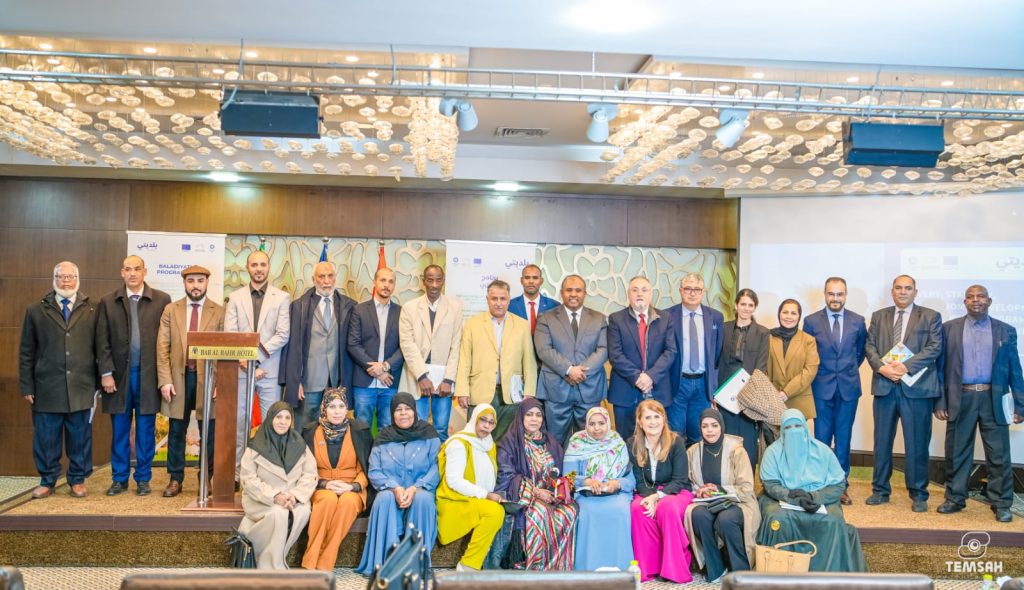
The Baladiyati – My Municipality programme, funded by the European Union through the EU Trust Fund, has been jointly implemented since 2018 by the Italian Agency for Development Cooperation (AICS), UNDP and UNICEF. Its aim is to enhance improved access to basic services and foster socio-economic development in Libya’s southern region.
Within this framework, CIHEAM Bari, acting as the main implementing agency of AICS’ Agricultural livelihood sub-component, carried out numerous activities targeting 11 municipalities in southern Libya. The initiative focused on creating development opportunities for youth and entrepreneurs, strengthening the agro-pastoral sector, and improving the efficiency of private agriculture.
Endorsed by the Libyan Ministry of Local Government and the municipalities involved, the project received substantial support from the Italian Embassy in Tripoli, which facilitated key institutional relations. On the ground, the KAFAA Foundation and the Municipal Support Committees (MSCs) played a pivotal role, engaging local officials, community leaders, and agricultural experts to ensure effective implementation.
The final event of CIHEAM Bari’s sub-component of the programme took place on 10 February in Tripoli, bringing together key stakeholders to showcase the achievements and discuss future cooperation opportunities in Libya. The event was attended by high-level representatives from the Libyan Ministry of Foreign Affairs (MoFA), the Ministry of Local Government (MoLG), the European Union Delegation, the Italian Embassy in Libya, AICS Tunis, and CIHEAM Bari delegates.
Key Achievements of CIHEAM Bari’s Baladiyati sub-component:
Strong stakeholder coordination, technical training, and resource distribution were pivotal to the project’s success, paving the way for future international cooperation efforts in Libya.
Further info about Baladiyati: https://www.eubaladiyati.org/
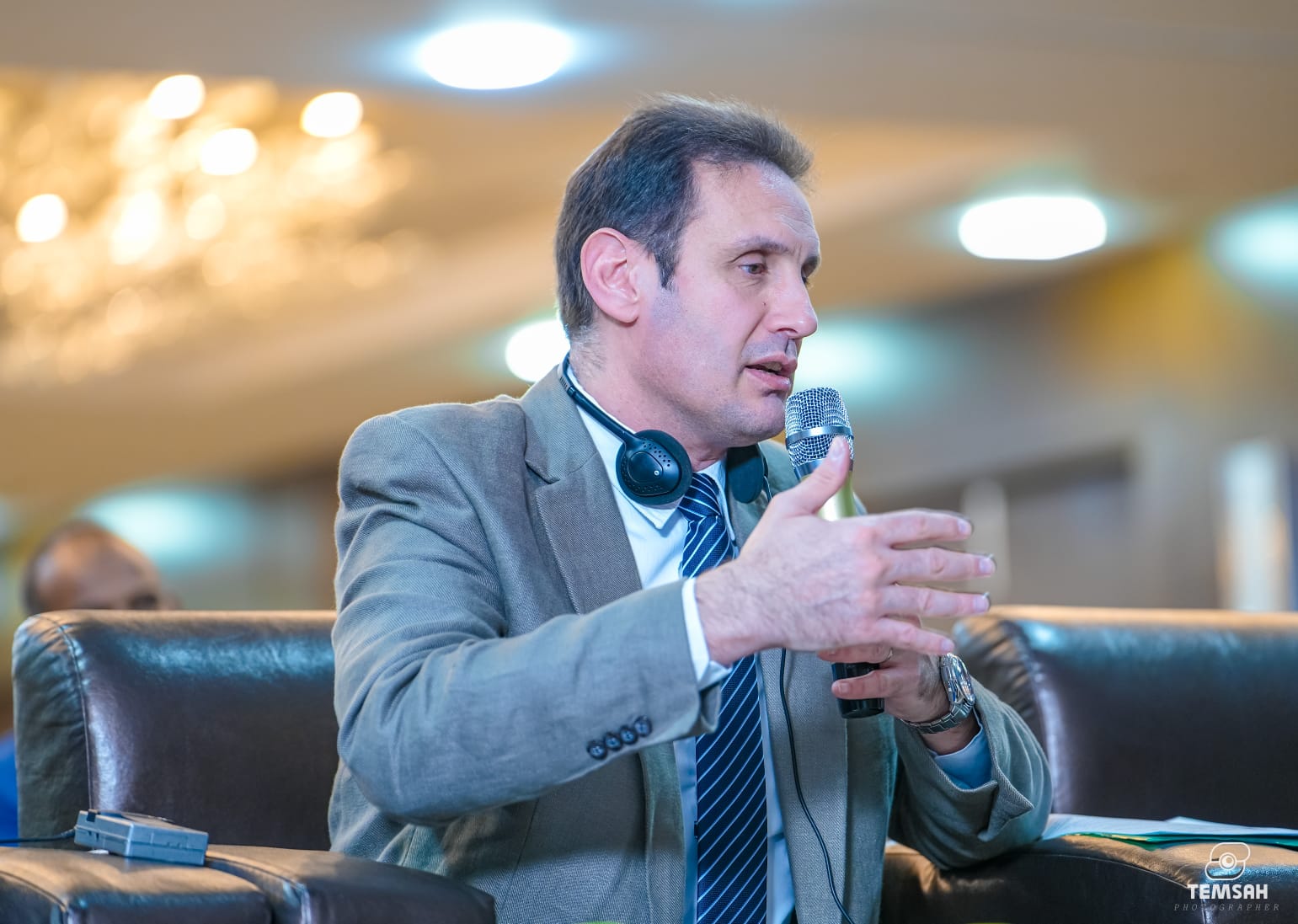
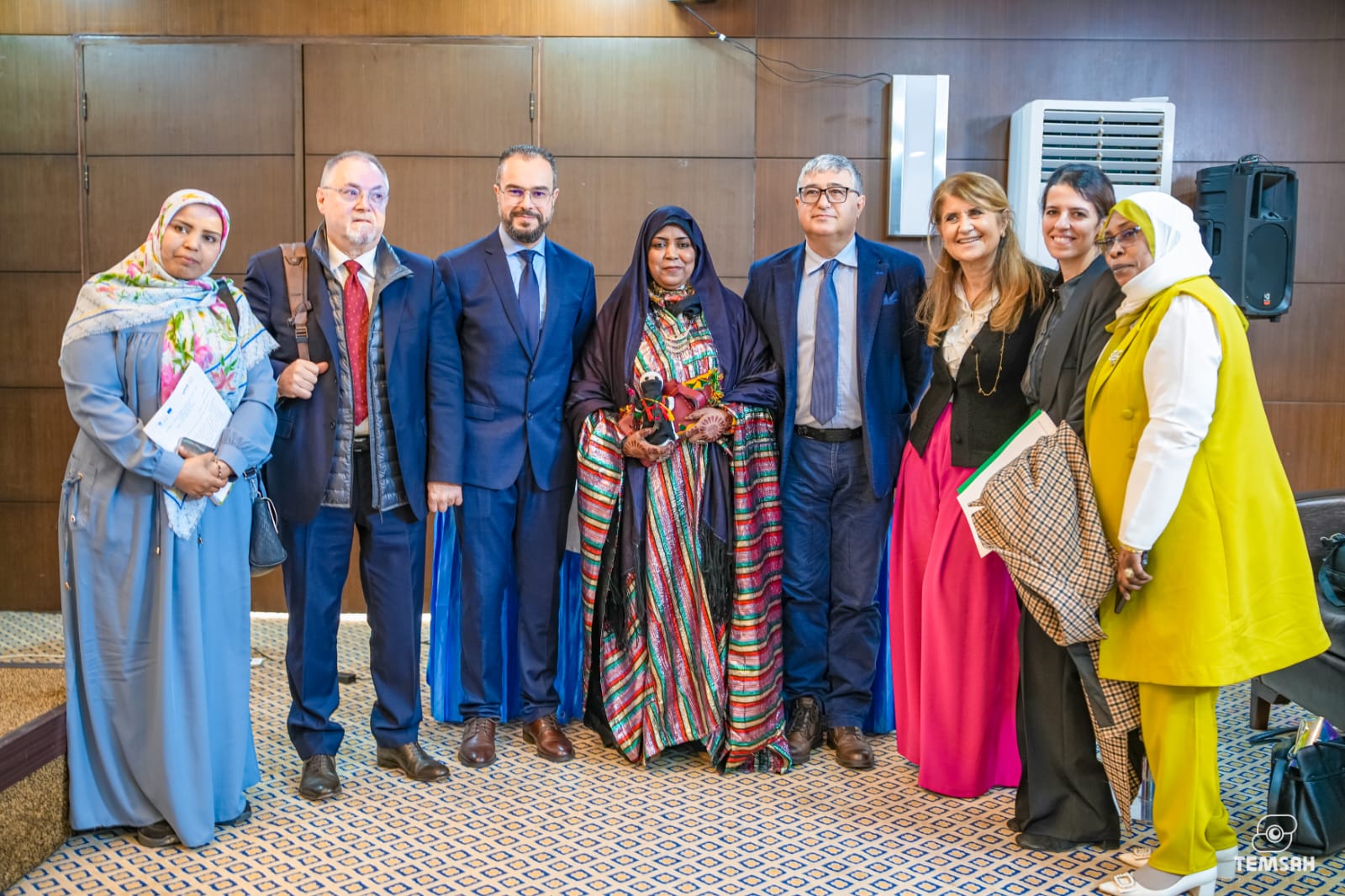
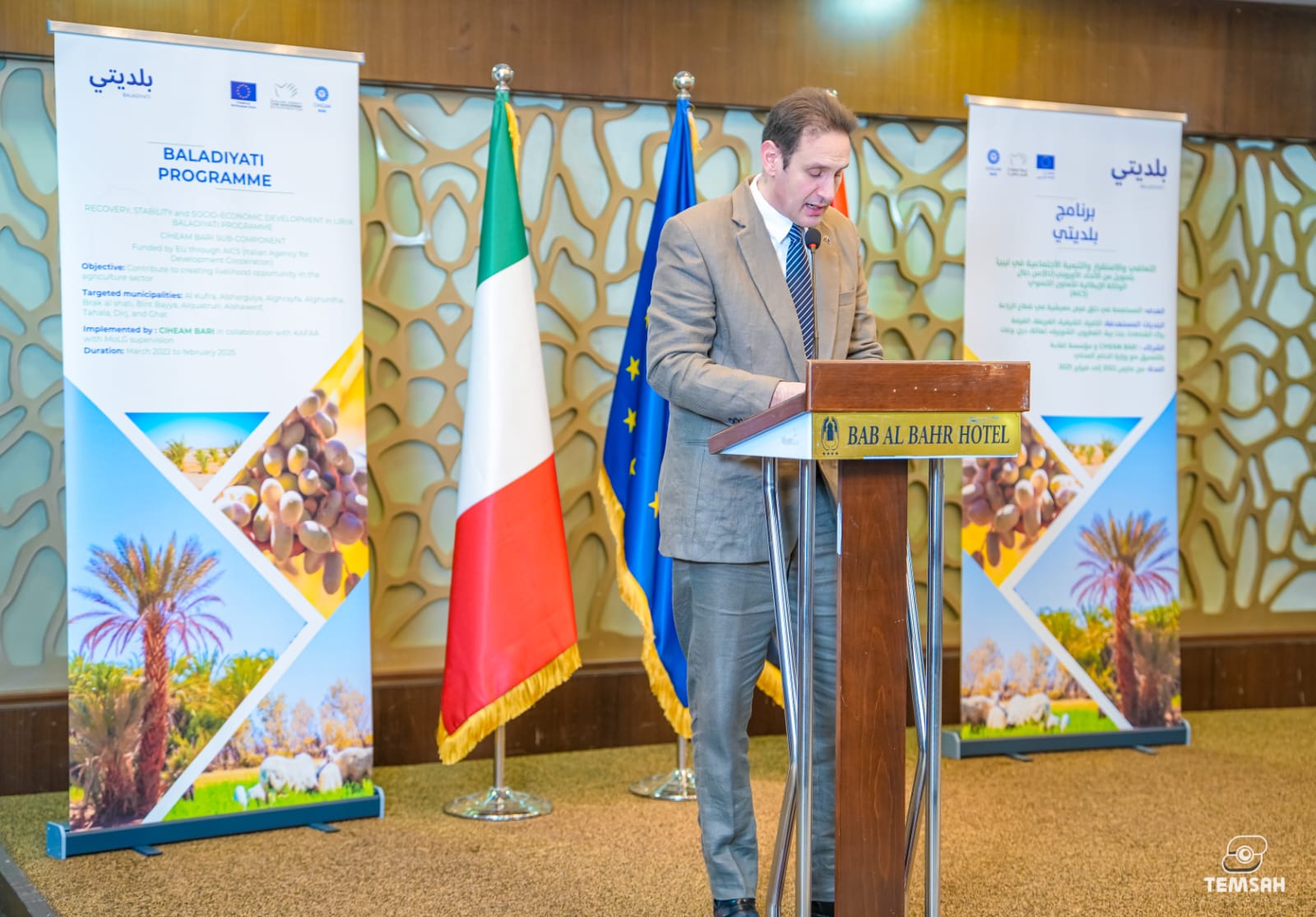
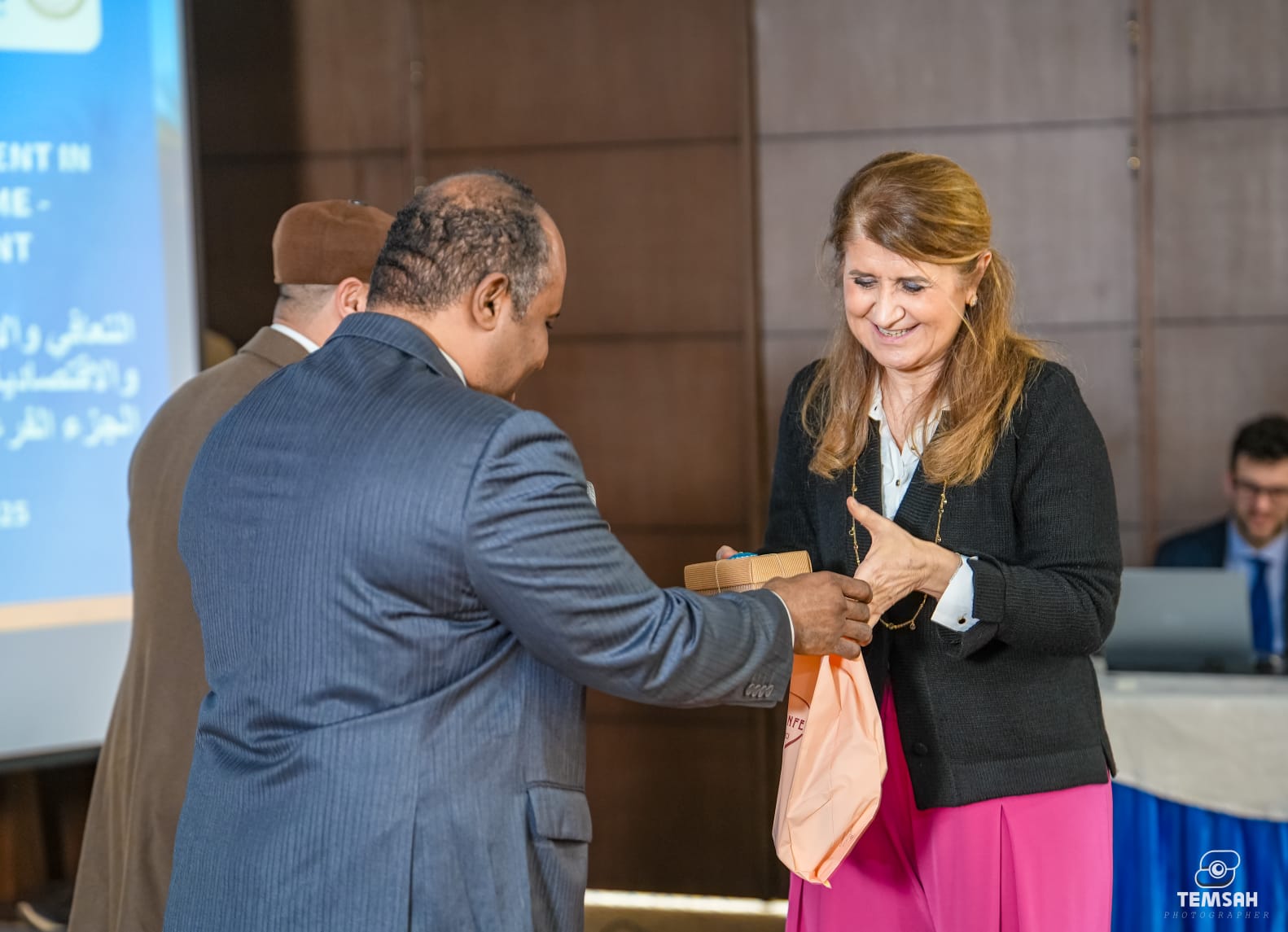
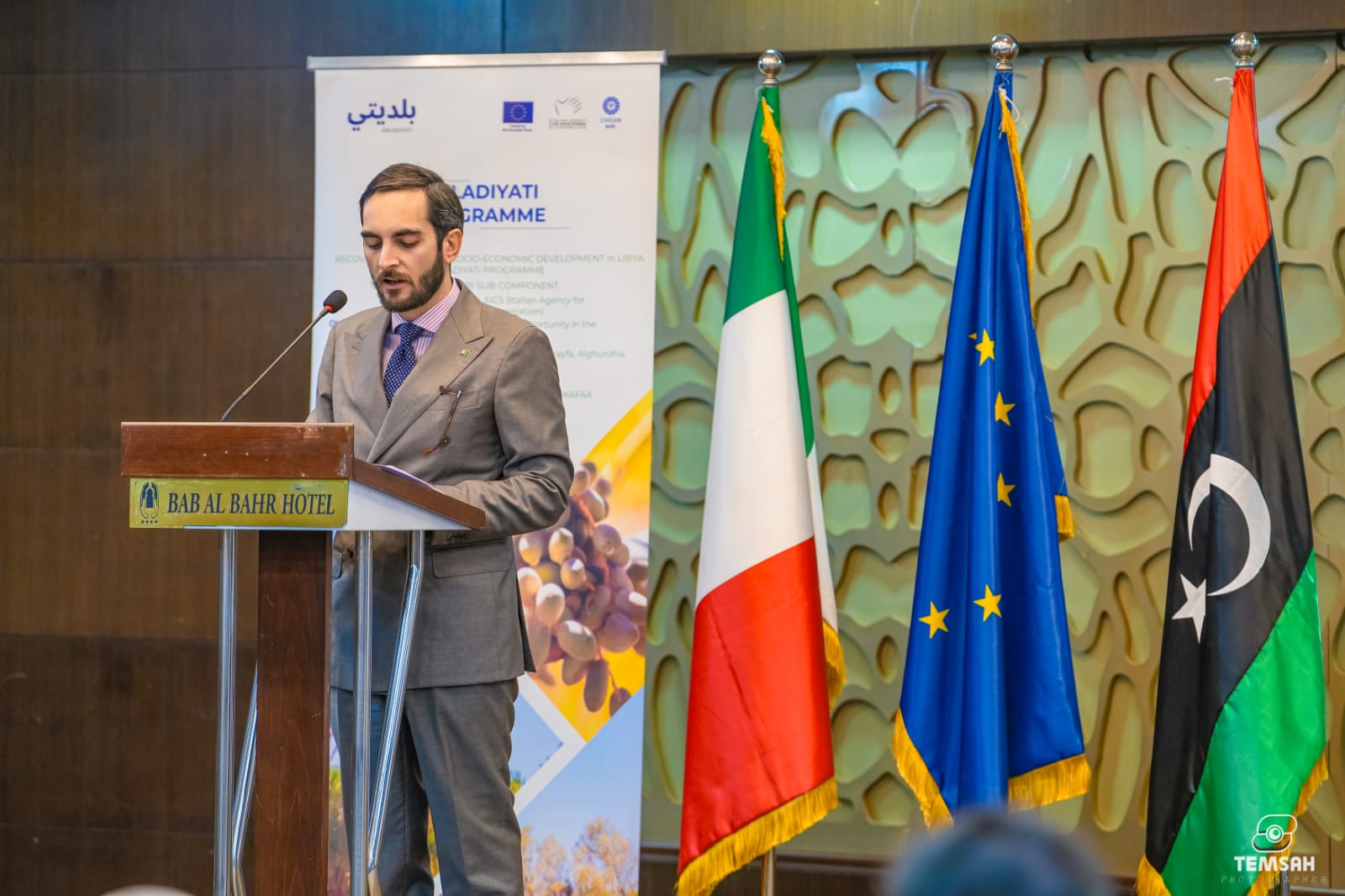
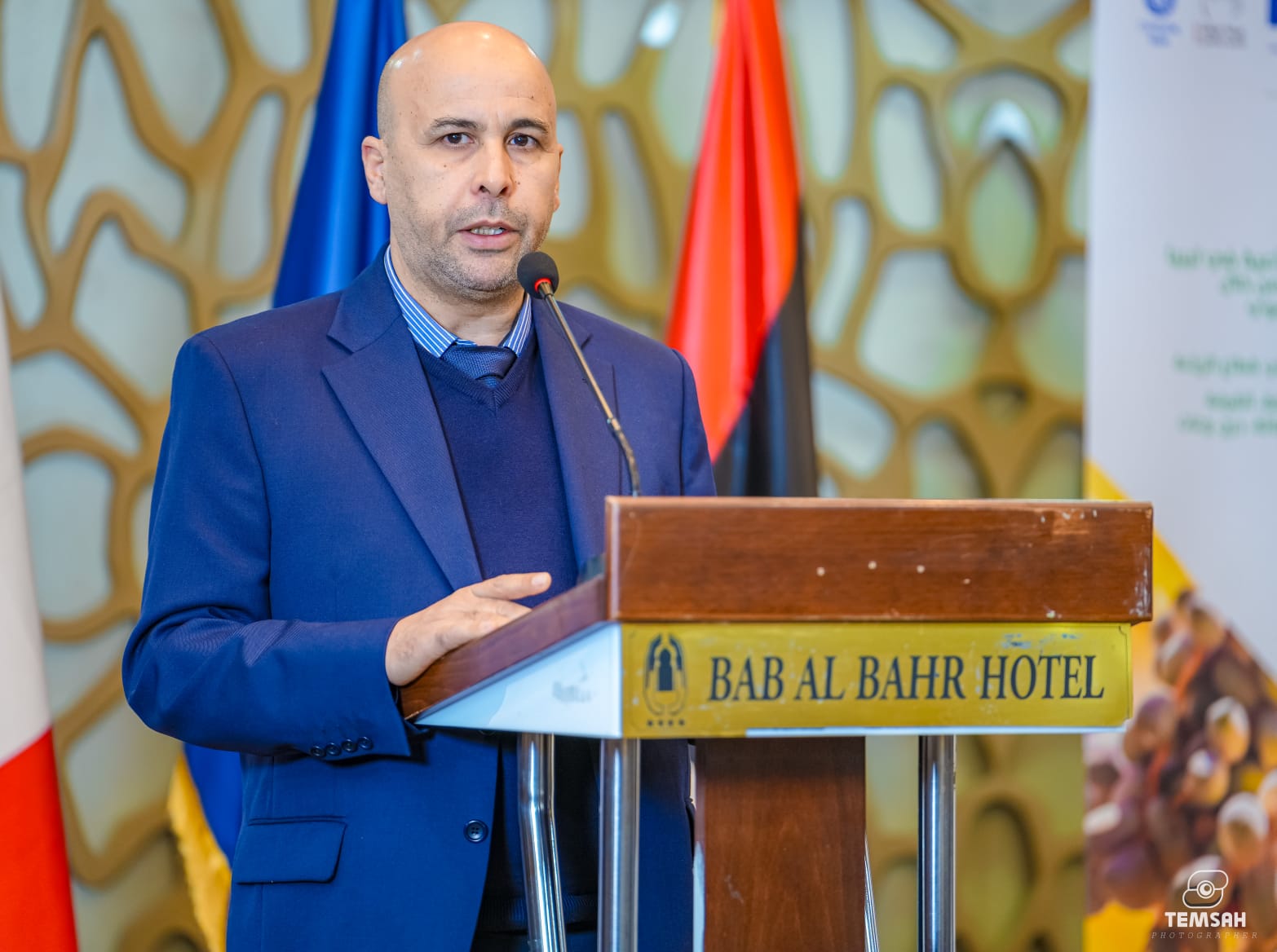
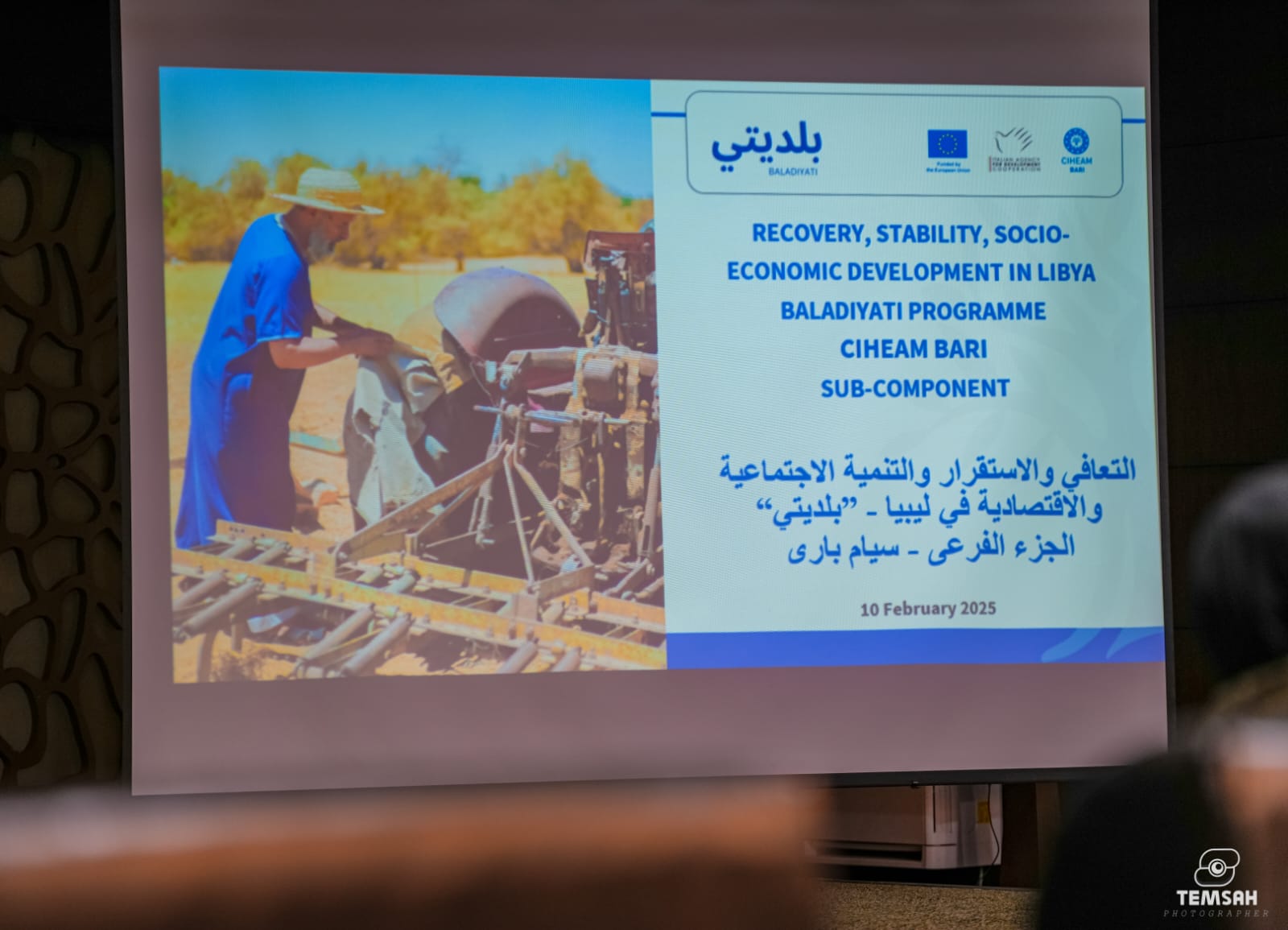
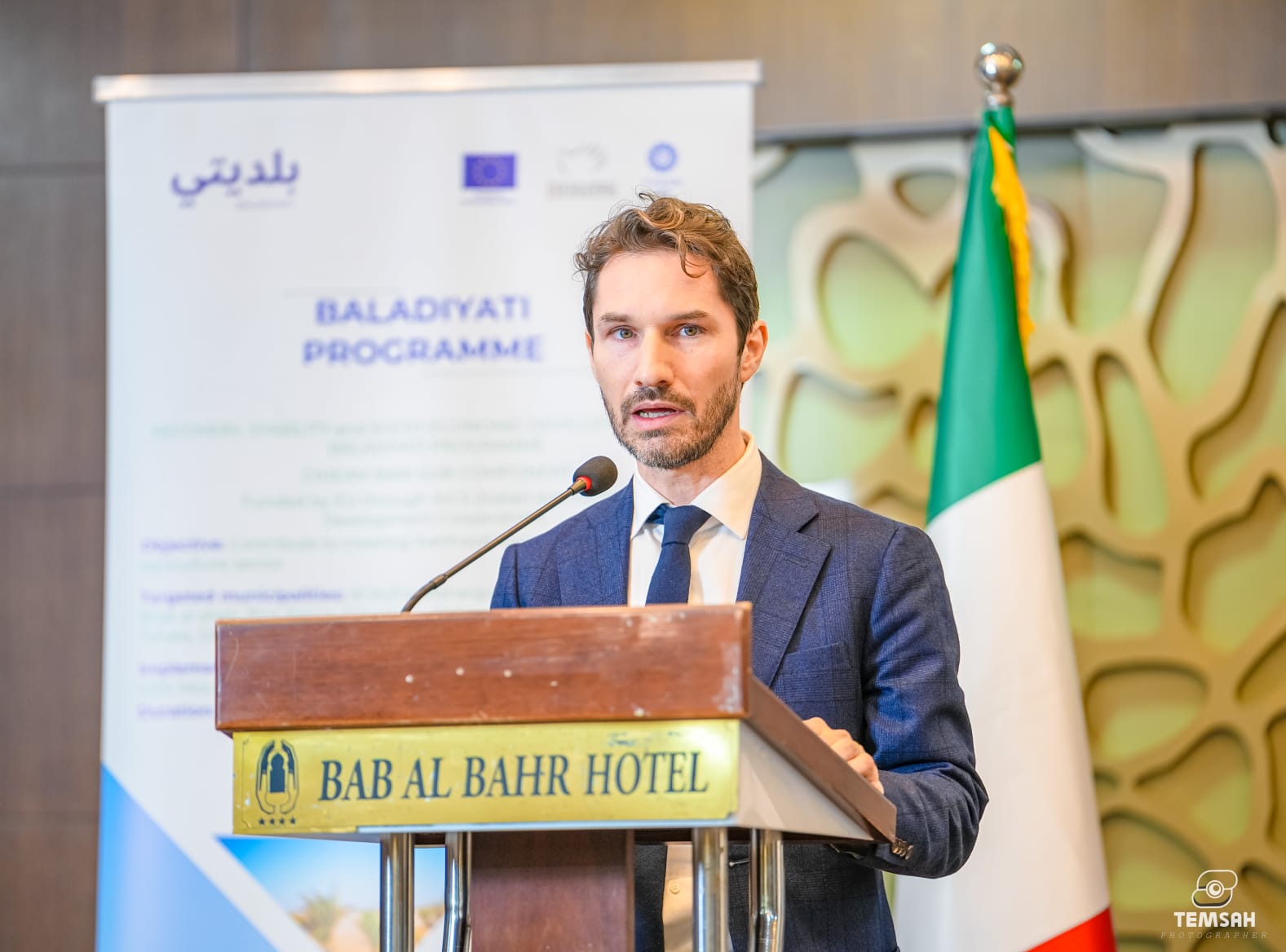

Prende il via il progetto di ricerca del Contratto di Filiera Trentingrana: Il sapore della qualità e della sostenibilità con il convegno di apertura che si terrà venerdì 14 febbraio a Trento, nella sede della Federazione Provinciale Allevatori (Via delle Bettine, 40) a partite dalle ore 9.30.
Il progetto di ricerca rappresenta uno dei principali strumenti dei contratti di filiera, concepiti come interventi a supporto degli investimenti nel settore agroalimentare, includendo tutte le fasi della produzione, trasformazione e commercializzazione.
Il CIHEAM Bari, in qualità di beneficiario e attuatore del progetto, collaborerà nella realizzazione del progetto con quattro enti di ricerca nazionali, ossia i dipartimenti di Medicina Veterinaria dell’Università degli Studi di Bari Aldo Moro, di Scienze Mediche Veterinarie dell’Alma Mater Studiorum di Bologna, di Agronomia, Animali, Alimenti, Risorse Naturali e Ambiente dell'Università degli Studi di Padova, e la Fondazione Edmund Mach di San Michele all’Adige (TN).
Il progetto di ricerca, che si svilupperà nell’arco di trentasei mesi con conclusione prevista entro il 2027, si concentrerà su tutte le fasi di produzione del formaggio Trentingrana. L’obiettivo è affrontare le sfide di ricerca su sviluppo di tecniche di alimentazione di precisione, applicazione dei principi dell’economia circolare nella gestione dei sottoprodotti della filiera, miglioramento della genetica bovina per una maggiore resilienza ai cambiamenti climatici, sviluppo degli indicatori di biodiversità e valorizzazione dei servizi ecosistemici nei pascoli di montagna.
Il CIHEAM Bari coordinerà le diverse attività di ricerca in stretta collaborazione con il CONCAST (Consorzio dei Caseifici Sociali Trentini), soggetto proponente del contratto di filiera Trentingrana: Il sapore della qualità e della sostenibilità e, in particolare, svilupperà tutte le attività di ricerca all’interno delle aziende beneficiarie.
Si è svolto qualche giorno fa a Ruvo di Puglia (BA) il settimo Living Lab del progetto triennale Grass Ceiling, finanziato dal programma europeo Horizon Europe e dedicato all’innovazione femminile in contesti di lavoro rurale. Il progetto, ormai al suo ultimo anno di attività, si concluderà a dicembre.
Il Living Lab è da sempre un’occasione di confronto e apprendimento collettivo. Fino a oggi, le otto donne innovatrici coinvolte hanno lavorato a idee di business nuove e accattivanti. Nell’ultimo incontro, però, è arrivato il momento di testarle sul campo. Seguendo il metodo del design thinking, il percorso è ora nella fase di prototipazione, cui seguirà un’importante fase di testing per simulare l’innovazione e definire i prossimi passi.
Le innovatrici stanno quindi sottoponendo i loro progetti al giudizio dei potenziali utenti finali. Un passaggio cruciale, che può confermare la validità delle idee o spingerle a rivedere strategie e scelte.
Il Living Lab ha mostrato loro il giusto percorso da compiere: attraverso un workshop sul Business Model Canvas, le partecipanti hanno reso più concreti i loro progetti, trasformando ciò che finora era solo un’idea in un piano strutturato.
Dal museo sulla storia di un antico frantoio al rebranding di un marchio di oli essenziali, fino a una Festa delle Stagioni, ogni progetto mira a valorizzare il territorio, grazie anche alla collaborazione del Bio-Distretto delle Lame che, insieme ai due co-lead, CIHEAM Bari e Legacoop Puglia, segue passo dopo passo l’evoluzione di questo percorso di innovazione al femminile in agricoltura.
C’è grande entusiasmo per i prossimi, decisivi appuntamenti. Del resto, come scriveva Antoine de Saint-Exupéry: "Fai della tua vita un sogno e di un sogno una realtà", e noi ci siamo quasi!
